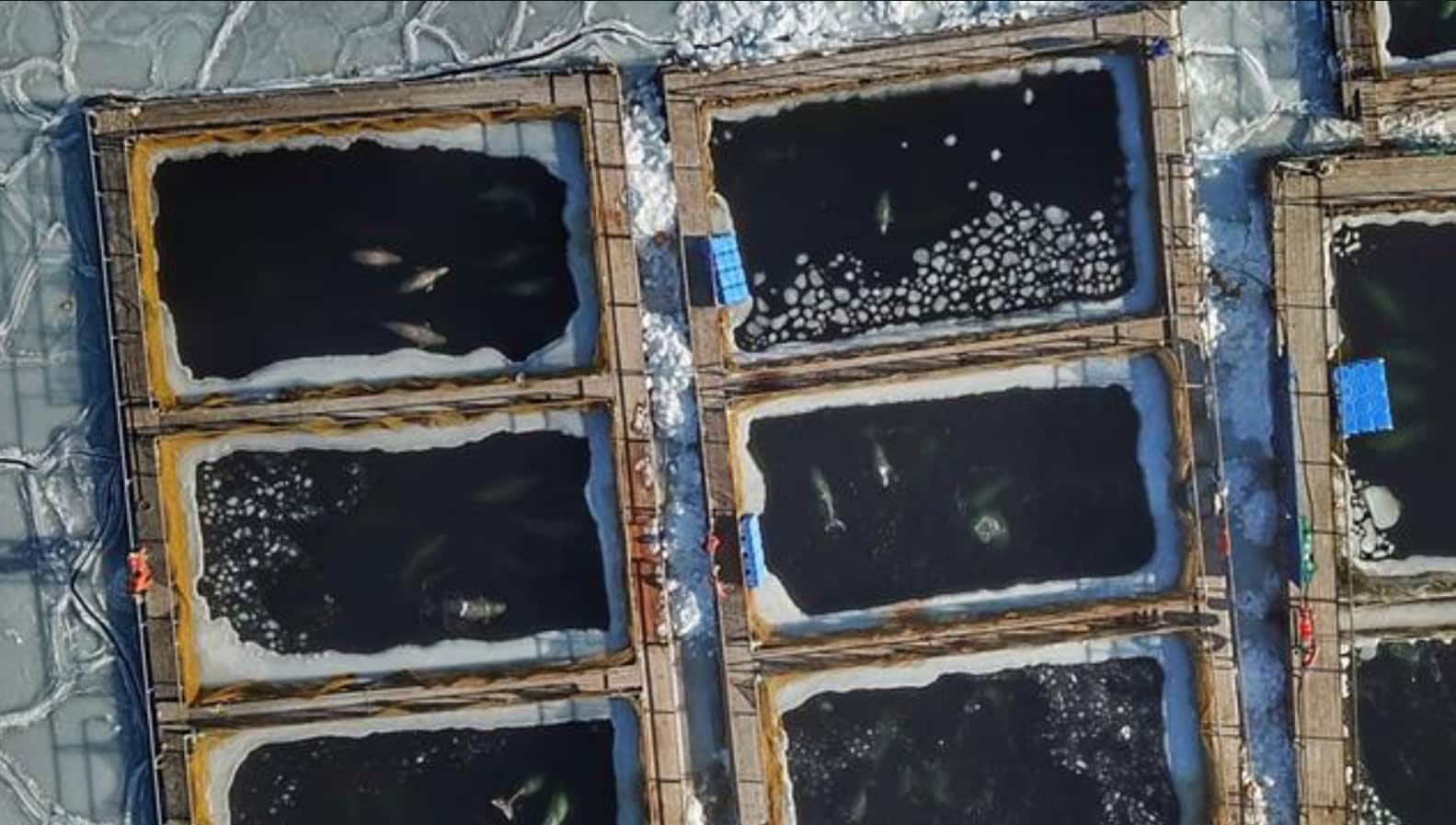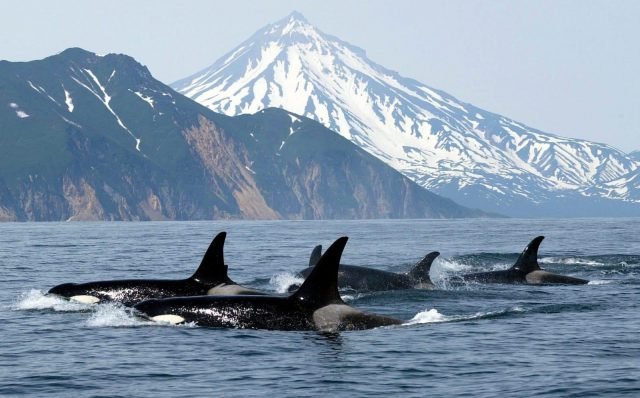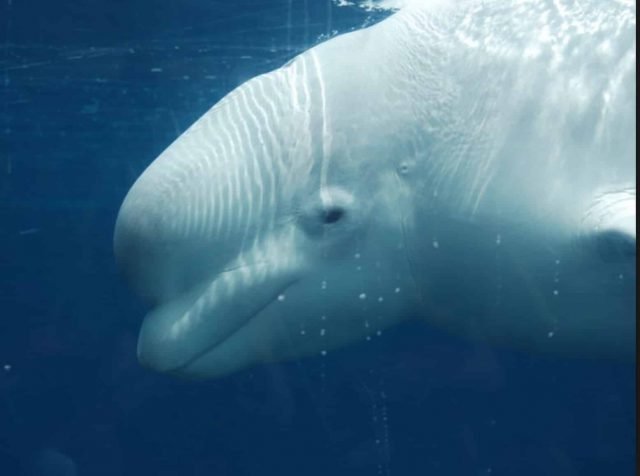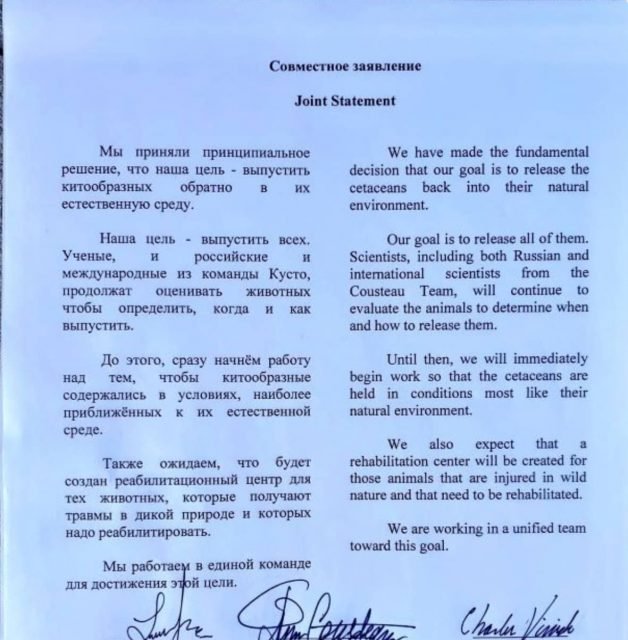
Russia Will Free 97 Orcas, Belugas Held in Cramped ‘Whale Jail’ Since Last Summer
Authorities and international scientists have signed an agreement pledging to release the whales “back into their natural environment”
By Meilan Solly/ Smithsonian.com
Russian authorities have agreed to initiate the release of 10 orcas and 87 belugas currently housed in overcrowded pens at a so-called “whale jail” off of the country’s southeastern coast.
Initially captured by four Russian companies hoping to sell the animals to marine theme parks in China, the whales have been confined at Srednyaya Bay since July to October 2018. Per the newly announced joint statement—signed by the Primorsky region’s governor, oceanographer Jean-Michel Cousteau and Whale Sanctuary Project Executive Director Charles Vinick—a team of international scientists will work to map out the captive creatures’ best chances of survival, deciding “when and how to release them” and creating a rehabilitation center designed to facilitate the process.

Although the animals could be freed as early as this summer, the Telegraph’s Alec Luhn notes that many of them are ill-equipped to return to the wild due to either poor health or a lifetime spent in confinement.
The whales were originally caught in the northern waters of Russia, meaning they are unfamiliar with the area surrounding their current enclosure and would likely not thrive if released there. As Neil MacFarquhar and Ivan Nechepurenko report for The New York Times, the scientists instead hope to return the orcas and belugas to the region in which they were captured, enabling them to reunite with family members and better assimilate back into the community.

At a press conference last week, Vinick explained that the animals’ “ability to survive on their own if the gates were just opened is limited.” Some of the whales are so young that they have no recollection of life outside of confinement; as a result, Vinick added, it remains unclear how well they would be able to “fend for themselves or work together.”

Jean-Michel Cousteau
According to Russian news agency Tass, the 97 whales will undergo assessment at the planned rehabilitation facility prior to their release or transfer to local dolphinariums. Those with issues such as skin lesions and flipper deterioration will receive medical treatment, and all will be housed in conditions “most like their natural environment.”
Reports of the animals’ captivity first surfaced last October, when local news outlet VL.ru published photographs of their cramped cage complex. In November, aerial drone footage of the scene was also released, leading the media to decry the network of rectangular pens as a so-called “whale jail.”
In January, Russian authorities invited researchers including Dmitry Lisitsyn, head of the Sakhalin Environment Watch, to evaluate the whales’ health. As Natasha Daly and Maria Antonova wrote for National Geographic the following month, Lisitsyn relayed stories of distressed belugas held in 12-by-10 meter spaces covered with ice subsequently broken up by “men crashing shovels over [the animals’] heads” and orcas experiencing symptoms of frostbite or fungal infection. Samples taken from 11 killer whales’ skin suggested that food left in the animals’ pens had begun to rot and infect their skin.
According to BBC News, three belugas and one orca known to belong to the original group of captive whales have since vanished and are presumed to be dead. At the time of the animals’ disappearance, local authorities claimed they had escaped, but as the Telegraph’s Luhn observes, activists believe otherwise.
Officials brought charges against the four companies linked with the whales’ capture in February, Nataliya Vasilyeva notes for the Associated Press. Although the proprietors claimed to have captured the whales for legal “scientific” purposes, they reneged on this agreement and began arranging the animals’ export to Chinese marine parks. Such illegal sales represent a lucrative endeavor, CBC News’ Chris Brown explains: Activist groups estimate that orcas can sell for up to $5 million each, while belugas can sell for up to $150,000.
It remains unclear how the whales’ release will ultimately unfold, but as Cousteau, son of famed oceanographer Jacques Cousteau, concluded at a press conference last week, “That’s our goal, for all of us, to release them. And it may take years. We don’t know yet.”

Carol graduated from Riverside White Cross School of Nursing in Columbus, Ohio and received her diploma as a registered nurse. She attended Bowling Green State University where she received a Bachelor of Arts Degree in History and Literature. She attended the University of Toledo, College of Nursing, and received a Master’s of Nursing Science Degree as an Educator.
She has traveled extensively, is a photographer, and writes on medical issues. Carol has three children RJ, Katherine, and Stephen – one daughter-in-law; Katie – two granddaughters; Isabella Marianna and Zoe Olivia – and one grandson, Alexander Paul. She also shares her life with her husband Gordon Duff, many cats, and two rescues.
ATTENTION READERS
We See The World From All Sides and Want YOU To Be Fully InformedIn fact, intentional disinformation is a disgraceful scourge in media today. So to assuage any possible errant incorrect information posted herein, we strongly encourage you to seek corroboration from other non-VT sources before forming an educated opinion.
About VT - Policies & Disclosures - Comment Policy



